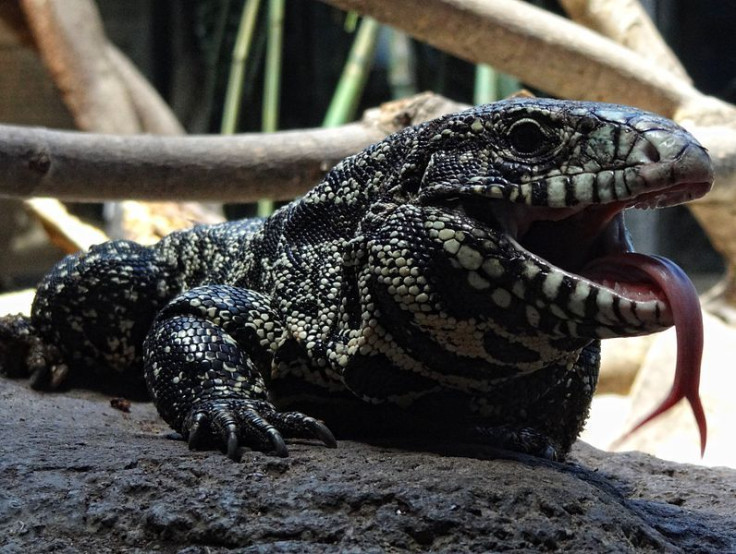Invasive 4-Feet-Long Lizard Poses Threat To Native Animals In Southeast US
KEY POINTS
- Argentine black-and-white tegu is an invasive animal
- They can grow up to 4 feet in size
- Tegu was once a popular choice of pet among Americans
The dog-sized lizards that are native to South America are spreading across the Southeastern United States. In fact, they have already made their way to parts of Georgia and South Carolina and pose a potential threat to the area's natural habitat and ecosystem.
Known as Argentine black-and-white tegu, these lizards are "voracious invaders," according to National Geographic. While these reptiles have proliferated in South Florida for more than a decade now, they are recently spotted in several counties of Georgia and South Carolina. Sightings in Alabama, Louisiana, Texas, and Central Florida have also been recorded.
Amy Yackel Adams, a biologist working with the United States Geological Survey (USGS), informed the media outlet that more than 79,000 tegus were imported from South America between the years 2000 and 2010. The biologist, who is known for her investigative study on the species, said tegus were once "sought-after pets" in the country.
However, a few of the tegus managed to escape their owners or were released into the wild that led to their reproduction in the area. They continue to spread and experts believe that this is "becoming a problem."
These animals, which can grow up to 4-feet-long, are omnivorous and they eat just about anything including birds, reptiles, and even sea turtles. They seem to be fond of fruits and vegetables, too.
Experts believe that once the species become established in the area, it will be hard to control their spread. This could be a real menace for the native genus and farmers.
"The entire southeast portion of the United States is at risk. Much of this area has a climate that is suitable for tegus," Adams said.
It is said that these animals thrive in upland forests and grasslands, particularly in areas that receive seasonal rains like Florida. Meanwhile, with climate change and the shift in tropical and subtropical climatological zones to the north, the area for tegus to spread will only expand. These large lizards' "predatory, egg-eating habits" have been a primary cause of concern among researchers remains as well.
Adams explained that if tegus continue to spread across the southeast parts of the U.S., they can endanger several nesting and ground animals. To tackle this impending situation, wildlife officials are still searching for solutions.
Meanwhile, officials at the USGS have trapped more than 900 tegus this year near Everglades National Park. At the same time, awareness campaigns are being run to encourage Georgia residents to report tegu sightings.
Nevertheless, the tegu numbers continue to grow. Experts believe stringent measures are required to control the spread of the species such as banning people from owning them as pets and barring tegu import.

© Copyright IBTimes 2024. All rights reserved.





















